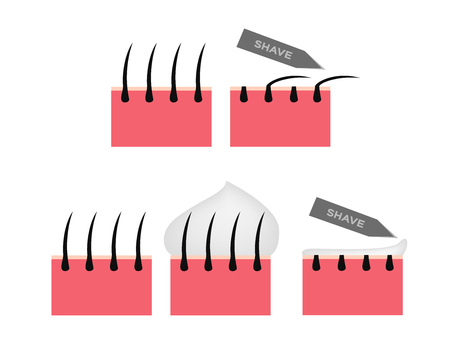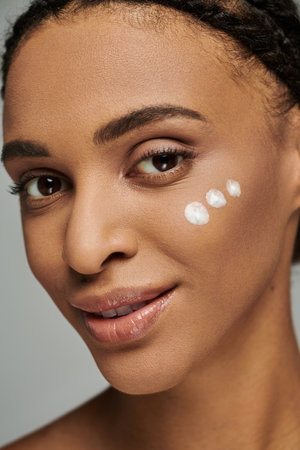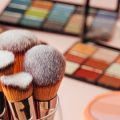Skipping Moisturizer
One of the most common mistakes people with oily skin make is skipping moisturizer altogether. It’s easy to understand why—if your face already feels greasy, adding more moisture might seem like the last thing you need. However, this approach can seriously backfire. When you deny your skin the hydration it needs, your body actually compensates by producing even more oil, leading to shinier skin and potentially more breakouts. In reality, all skin types—including oily—require proper hydration to maintain a balanced and healthy barrier. The key is choosing a lightweight, non-comedogenic moisturizer that won’t clog pores or leave you feeling greasy. So, instead of ditching moisturizer, opt for oil-free formulas that provide moisture without contributing to excess shine. Trust us, your skin will thank you in the long run.
2. Over-Cleansing and Stripping the Skin
One of the most common mistakes people with oily skin make is over-cleansing in an attempt to get rid of excess shine. It’s tempting to wash your face multiple times a day or reach for harsh, foaming cleansers that promise a squeaky-clean feel. However, doing so can actually backfire. When you strip away your skin’s natural oils, your body responds by producing even more oil to compensate, leading to a never-ending cycle of greasiness and potential breakouts.
Why Over-Cleansing Is Harmful
Your skin needs some oil to stay healthy and balanced. Over-washing or using products with strong detergents removes these essential oils, disrupting the skin’s barrier function. This not only increases oil production but can also leave your skin feeling tight, dry, and irritated.
Common Signs You’re Over-Cleansing
| Sign | Description |
|---|---|
| Tightness after washing | Your skin feels uncomfortable or overly taut post-cleansing. |
| Increased oiliness | You notice your skin becomes greasy more quickly throughout the day. |
| Flakiness or redness | Irritation and peeling may occur due to loss of moisture. |
How to Cleanse Oily Skin the Right Way
Stick to cleansing twice a day—morning and night—with a gentle, sulfate-free cleanser designed for oily or combination skin. Avoid scrubbing vigorously or using hot water, as both can aggravate oil production. Instead, use lukewarm water and pat your face dry with a clean towel. Remember, balance is key when it comes to managing oily skin effectively.

3. Using the Wrong Products
One of the biggest skincare mistakes people with oily skin make is choosing products that just aren’t right for their skin type. It’s super common to reach for thick, heavy creams or moisturizers thinking they’ll hydrate better, but these often end up sitting on the surface and clogging pores. Another misstep is not checking if a product is non-comedogenic—meaning it won’t block your pores. Many people assume all facial products are safe for oily skin, but even some “natural” or “gentle” formulas can cause breakouts if they’re too rich or oily. Americans love multi-step routines, but piling on incompatible products can make things worse. Instead, look for lightweight, oil-free, and non-comedogenic options that specifically mention suitability for oily or acne-prone skin. Don’t be tempted by trendy skincare if it doesn’t fit your skin’s needs—reading labels and understanding ingredients will help you avoid unnecessary flare-ups and keep your complexion balanced.
4. Ignoring Sun Protection
One of the biggest skincare mistakes people with oily skin make is skipping sunscreen, believing the myth that SPF products will make their skin even greasier or cause more breakouts. This misconception leads many to ignore one of the most crucial steps in any skincare routine: daily sun protection. In reality, every skin type—including oily and acne-prone—absolutely needs SPF to protect against harmful UV rays, which can cause premature aging, hyperpigmentation, and even worsen oiliness by damaging the skin barrier. Today’s sunscreens are formulated for all skin types, including lightweight, non-comedogenic options that won’t clog pores or leave a greasy finish.
Common Excuses for Skipping Sunscreen
| Excuse | Reality Check |
|---|---|
| Sunscreen makes my face shiny | There are mattifying, oil-free formulas specifically designed for oily skin. |
| I dont need SPF if Im indoors | UV rays penetrate windows; daily protection is still necessary. |
| Sunscreen causes breakouts | Look for “non-comedogenic” on the label—these wont clog pores. |
Why Oily Skin Needs Daily SPF
Oily skin is not immune to sun damage; in fact, skipping SPF can actually trigger more oil production as your skin tries to repair itself after UV exposure. Consistent use of sunscreen helps maintain an even skin tone and keeps excess oil at bay by protecting your skin’s natural barrier. Choose lightweight gels or mineral sunscreens labeled “oil-free” or “matte finish” to keep your complexion protected without feeling heavy or slick.
Pro Tip
Apply sunscreen as the final step in your morning skincare routine, even on cloudy days. Reapply every two hours if you’re spending extended time outdoors. Your future self—and your skin—will thank you!
5. Obsessing Over Oil-Control
It’s easy to fall into the trap of thinking that the more you fight oil, the better your skin will look. But for people with oily skin, obsessively using mattifying products, blotting papers, and oil-absorbing powders can actually backfire. When you constantly strip away natural oils, your skin interprets it as a signal to produce even more oil to compensate. This creates a frustrating cycle where your face feels greasy despite all your efforts.
Mattifying primers and setting powders might be great for special occasions or long days, but using them every day can clog pores and lead to more breakouts or irritation. Similarly, while blotting papers are convenient for quick touch-ups, overusing them throughout the day can disrupt your skin’s balance and leave you feeling even shinier in the long run.
The key is moderation. Focus on gentle cleansing and lightweight, non-comedogenic moisturizers to maintain a healthy barrier. Instead of going overboard with oil-control tactics, try embracing a routine that supports your skin’s natural function without sending it into overdrive. Remember: having some oil is normal and even necessary for healthy skin—your goal should be balance, not complete dryness.
6. DIY Skincare Gone Wrong
When it comes to oily skin, many people turn to popular DIY remedies they find on social media or beauty blogs. While the idea of using kitchen ingredients like lemon juice, baking soda, or even toothpaste might sound appealing and budget-friendly, these at-home solutions can actually do more harm than good. Lemon juice, for example, is highly acidic and can seriously disrupt your skin’s natural pH balance, causing irritation, dryness, and even chemical burns—especially if you have sensitive or oily-prone skin. Toothpaste is another common myth; although it may temporarily dry out a pimple due to its menthol content, it also contains harsh chemicals that can trigger redness, peeling, and worse breakouts over time.
Many home remedies lack scientific backing and are not formulated for facial skin, which is much more delicate than other areas of the body. Applying products like baking soda or vinegar can strip away essential oils, leading your skin to produce even more oil as a defense mechanism. This cycle of over-drying followed by increased oiliness just makes things worse in the long run.
If you’re struggling with oily skin, it’s always smarter to stick with gentle cleansers and products specifically designed for your skin type. Consulting a dermatologist before trying new treatments can save you from painful side effects and wasted time. Remember: just because something works for one person on TikTok doesn’t mean it’s right for everyone—especially when it comes to your face.


